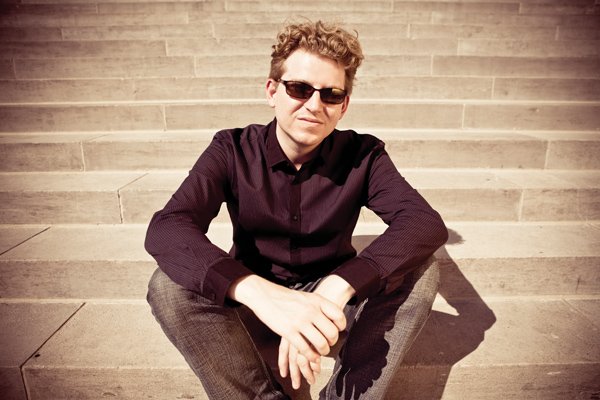LITTLE ROCK — Philip Mann gets to use some really cool words when talking about his journey from childhood musician in Colorado to a new musical life in Arkansas. Words and titles like “vagabond” and “maestro.” But the new ones on the list, while not quite as exotic, are potentially the most exciting: music director of the Arkansas Symphony Orchestra.
“When the ASO comes up, it's not just another position, because the Arkansas Symphony Orchestra already has a reputation nationally for being a great collection of musicians,” said Mann, who earlier this year was selected for the post — by a unanimous decision — from an original field of 275 applicants. He delivers his first performance as music director this weekend at Robinson Center Music Hall.
Arriving at this point took two years as the list of candidates shrunk. All the favorites, including Mann, came to the Natural State to conduct performances of the ASO over its past season, culminating in the farewell performance of former music director David Itkin, who held the job for 16 years.
Itkin, of course, left quite a legacy, acknowledged Mann. But the job is made easier by the foundation in place: the orchestra itself, the board of directors and the executive leadership.
“That is a position that most orchestras in the U.S. would love to be in,” he said.
As for his position, Mann came to it by way of a childhood surrounded by music, whether it was his parents playing chamber music, visiting guests playing the piano in his home or he and his brother playing violin. Born in Indiana, he grew up in Colorado and “there was never any question for me that music would be a large part of my life.”
However, going into college, it wasn't necessarily going to be a profession. Mann was interested in and heavily recruited by physics and engineering programs and thought he might be a scientist.
But music was a siren’s call he could not ignore. Besides, he said, “from a pragmatic standpoint, music is one of those things that, if it passes you by professionally, there's no going back. So I thought I'd seize the moment and let it carry me as far as it would go.”
That ride has included studies at Indiana University and abroad as a Rhodes Scholar at Oxford. It brought him together with the woman who would become his wife, a concert pianist he met as an undergraduate at Arizona State. It also took him to professional positions across the country and beyond.
“When people ask who my teachers were, it's a long list of people all over the United States and Europe,” he said.
That's where the “vagabond” lifestyle enters the conversation. That he's left it behind for a position as maestro with a nationally known orchestra is understandable as a natural career step. But it's important to note he's done it at age 32.
“You could say there are lots of potential distractions for a young conductor who has experienced success very quickly,” said Mann, who appears to want to avoid the label despite his youthful face and energetic exuberance. “So I find it essential that my focus stays on the music.”
That, he said, will be the driving focus behind all he hopes to do here in Arkansas. As the music director, he's the one with the baton up front at performances. But the biggest parts of the job come offstage: deciding what pieces to play — “pieces with something specific to say about Arkansas” — and choosing artists who can introduce that repertoire to the audience.
So while it might sound natural to want to take an orchestra to the biggest concert halls in the world, from New York to Vienna, Mann said his aim is making music for the Natural State.
“If I use music as my guide,” he said, “I can't go wrong.”
That may sound somewhat esoteric, but Mann grounds his philosophy in sound, almost scientific, reasoning.
“People assume it's just about the beauty and loveliness of the sound … but concert music can express the entire range of human emotion, from irony to humor to anger and tragedy,” he said. “It might even make you feel hungry.”
With the entire human experience at one's disposal, it's only a matter of eliciting feelings that resonate with the audience. If that isn't accomplished, “we haven't done our job,” he said.
“The power of music to impact people's daily lives can't even be quantified,” he continued. “That's why I've devoted my life to sharing it with others.”
It's not always easy. It's no secret times are tough for a lot of people financially, and the symphony is all that more remote when it's a foreign experience for many people — a fact Mann knows well and said he hopes to change.
“More so than any other industry, we do a very good job of putting up a barrier between the art and the viewer, and that's something I hope to shatter here,” said Mann, who added that while he believes in the formality of things like “19th century” attire for musicians, he empathizes with those who feel alienated. “Until you've had the experience, it can feel very daunting.
“But I believe in that formality, because it serves to focus attention on the art.”
To soften up that rigidity, Mann said he plans to engage audiences by speaking to them directly and explaining why the pieces in a performance were chosen, how he feels they are relevant and effective. He hopes to do this both on stage at Robinson, as well as in other as-yet-unidentified “experimental venues.”
And he wants both himself and his musicians to see and be seen in the community, to interact with people and put a face and a name to the ASO.
“We're not just penguins on stage at Robinson,” he said. “We're your neighbors.”
And that includes Maestro Mann, himself, a vagabond musician turned Arkansan.
